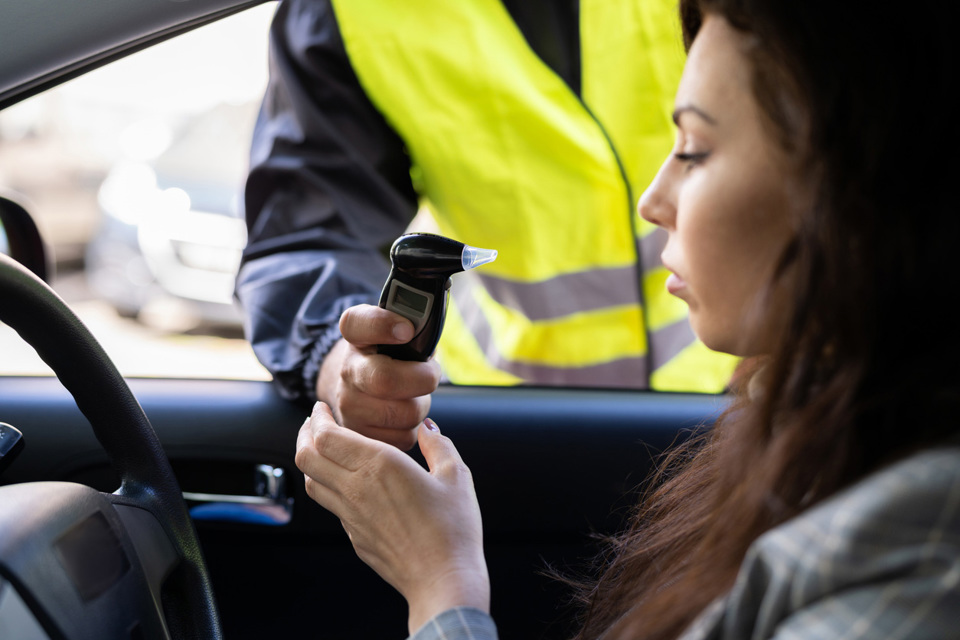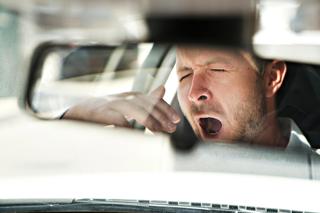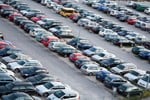More than a third (38%) of drivers have revealed they were still consuming alcohol after 9pm even though they were driving before 9am the following day.
The new research, published by UK road safety charity IAM RoadSmart, also showed that one-in-five (21%) had their final drink after 10pm.
Guidance from Drink Aware says that alcohol is removed from the body at a rate of one unit per hour, though this varies depending on weight, liver health and metabolism speed.
Alcohol Change UK’s unit measurement means consuming three large glasses of wine or three pints of high strength beer or cider is the equivalent of nine units, therefore stopping drinking at 10pm means there could still be alcohol within the body at 7am or later depending on the person.
Department for Transport (DfT) data shows that July has the highest number of casualties related to drink-driving, higher than any other calendar month and worse than December which is traditionally seen as the period where more people are tempted to drink drive.
The IAM RoadSmart survey of 1,072 motorists also found almost a third (31%) of drivers in the past 12 months had been in the company of a friend or a relative who had been consuming alcohol before that person got into their vehicle or onto their motorcycle.
Almost three-quarters (72%) warned them that they should not use their vehicle. However, one-n-four (23%) did not take any action with 5% of this group believing it was none of their business to say anything.
Almost two-thirds (62%) of drivers believe that the increasing prevalence of zero-alcohol alternatives can play an important role in reducing drink driving.
IAM RoadSmart director of policy and standards, Nicholas Lyes, said: “Drink-driving is a killer, and drivers may be unwittingly getting into their vehicle in the morning unaware that they could be doing so illegally if they have been drinking alcohol the night before, posing a serious threat to the safety of others.
“Even if they are just inside the legal limit, the level of alcohol in their system will impair their reaction times.
“Moreover, consuming alcohol impacts on sleep quality, so at best they will be driving tired, with a groggy head and have slower reaction times, at worst they will be breaking the law or be involved in a serious collision.”
Separately, the research found that there were very high levels of support for drink-drive rehabilitation courses, with 80% saying such courses are vital to reducing reoffending.
A similar amount (81%) said such courses should become mandatory for anyone who has been convicted for drink-drive-related offences, rather than the status quo of it being an offered option with no compulsion to complete the course.
The impact of alcohol on road safety is seen as the most effective part of these programmes by 83%, with respondents also signalling support for additional modules that focus on the impact drink driving can have on victims.
In 2022, an estimated 300 people were killed in collisions involving at least one driver or rider over the drink-drive limit in Great Britain, the highest since 2009.
In Northern Ireland, there were 63 fatalities in the same year. Updated 2023 figures for Great Britain are due later this month.
Lyes continued: “Our advice is always ‘none for the road’, which applies when you’re driving to a social gathering.
“If you are socialising the night before and need to use your vehicle the following morning, you should exercise caution in what you consume or delay your journey the following day.
“Many tend to associate a spike in drink driving over Christmas, but summertime is also a high-risk period, with people making the most of outdoor social gatherings and pub gardens.”
Chief Constable Jo Shiner, roads policing lead for England and Wales, says that there is “no excuse” for getting behind the wheel when impaired through drink or drugs and this includes the morning after.
“If you choose to do so you are putting your life and the lives of others at risk,” she added.
“Throughout the month of July, we are running Operation Spotlight across the country targeting the fatal four which includes drink and drug driving.
“Officers will be out on the roads and whilst we cannot be everywhere we can be anywhere.
“When you are stopped by police you will be prosecuted and banned from driving. You will also be fined and could go to prison.”
National Highways says that the statistics are concerning and act as a timely reminder to consider the implications of a previous evening’s alcohol consumption before driving the following morning.
“Everyone using the road network has the right to complete their journey in safety and without it being jeopardised by others,” said Sheena Hague, director of road safety at National Highways.
“Getting behind the wheel with alcohol in your system impairs your driving ability and puts lives at risk.”























Login to comment
Comments
No comments have been made yet.